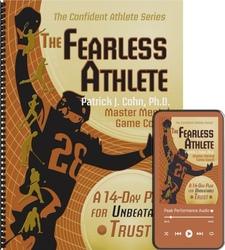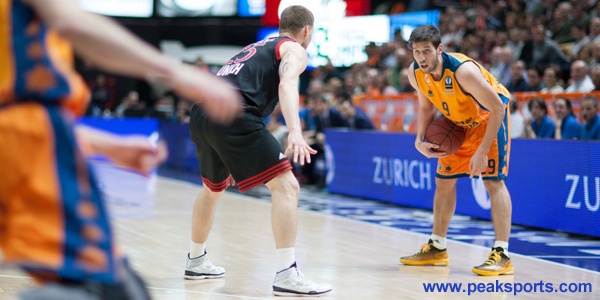How to Minimize Game Time Pressure
Many times, athletes attribute poor performance to pressure and nervousness. These athletes often complain that their parents, coaches, or teammates put too much pressure on them.
While parents and coaches create an environment of pressure, they are not the cause of pressure. The cause of pressure is when the athlete internalizes the expectations of others.
When an athlete experiences extreme pressure to succeed, anxiety skyrockets and performance crashes.
Even when a lot is riding on the competition, such as playing in an elimination game, competing against a rival or performing at nationals, the game remains the same as it always has.
In gymnastics, the apparatuses are the same as when you were younger.
In baseball, the distance between bases is constant.
In volleyball, the net is the same height as it is during practices.
In tennis, the court size is standard.
Even in golf, though conditions and courses may differ, the game has not changed from when you were younger.
If you take this approach, you can lessen the pressure to perform.
One strategy to cope with performance anxiety was employed by Boston Celtics guard Kyrie Irving.
Irving was traded from an NBA powerhouse team, the Cleveland Cavaliers, where he was paired up with LeBron James, one of the best players of all-time. Irving had the charge of pushing the Celtics over the top in hopes of winning an NBA championship.
Coupled with the fact that Irving was facing his former team for the first time, the potential for excessive pressure was palpable.
When asked if he was anxious for the clash against his former team, Irving stated there was no pressure at all.
IRVING: “No. Why would it be? It’s just hoops. It’s just hooping. I understand the magnitude. I get all that. It’s part of the game. It’s been a part of the game for a while. But, it’s just two hoops and a basketball.”
Irving maintains his composure with his standard approach to every game, no matter the circumstances…
Being booed by opposing fans, being down by 30 points, being in championship games, defending against top scores, taking the final shot of the game…
IRVING: “It’s just fun, man. That’s it. It’s pretty simple. I don’t really see it as a pressure situation… it’s just fun basketball. It’s like being in the park, and the game is 7-7, and the game is to eight, and someone calls win by two… I don’t want to say the NBA is like playing at the park, but to me, I kind of just see that as that fun basketball.”
If you can approach every game as just another game, no more and no less, you can perform with freedom.
How to Minimize Pressure:
Identify 3 parts of competition that have remained the same since your earlier days of competing. Tell yourself, “The game is the same. Go out and have fun.”
You may need to remind yourself of this mindset several times during the competition, especially when you feel your nerves building.
Try to focus on the process instead of worrying about the outcome of competition and what it means to you. Your worry is directed at the outcome and aftermath of competition.
Start by checking out how to become a fearless athlete…
Related Sports Psychology Articles
- How to Compete Well in Pressure Moments
- How to Perform Big in Pressure Moments
- Is Pressure Your Friend or Foe?
*Subscribe to The Sports Psychology Podcast on iTunes
*Subscribe to The Sports Psychology Podcast on Spotify
Download a free sports psychology report to improve your mental game!
Learn more about our one-on-one mental game coaching.
The Fearless Athlete

For the last two decades, I’ve been working with athletes and helping them optimize their physical ability by teaching them the secrets of top performing athletes. Now, you too can learn how to regain that child-like fearless attitude.
Mental toughness is what separates the winner from the loser in any competition. Champion athletes train hard in practice, perform without fear in competition, and trust their skills in crunch-time.
The Fearless Athlete program is ideal for any athlete that wants to overcome fear of failure and uncover inhibiting perfectionistic traits; or for any coach or parent who wants to teach athletes to perform with trust and freedom in competition.

